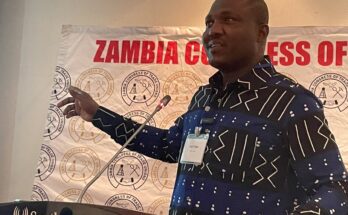Engr. Akin Olateru is the Commissioner for Accident Investigation Bureau (AIB), in this interview with SULEIMAN IDRIS, he speaks on the agency’s plans to spread its tentacles into investigating rail, road and marine accidents.
Since you assumed office, you have undertaken a number of worthwhile ventures and one is the multi-modal transport investigation, take us through your plan?
When we say we are going oing multi-modal, we means we are going to be investigating not just air accidents, we are going to be investigating rail accidents, we are going to be investigating marine accidents and road accidents. We are joining nations round the world who operate this multi-modal system. Last year, the Federal Executive Council approved our proposal, the new draft bill for AIB, before the Senate went on recess. This Bill is in the Senate and hopefully, soon the bill will be passed and that would make Nigeria one of the top nations that does multi-modal. Few months ago, we reviewed that to take care of all those gaps. How do we prevent future occurrence? When I said training, in the last one year we have sent 30 of our investigators to Cranfield University to train on multi-modal accident investigation. They are back in Nigeria. We are working closely with the U.S. NTSB. Singapore NTSB is working with us on this. As we speak, we have a relationship with NTSB as some of our investigators go there for on-the-job training, not just read books or sit in the classroom, but to actually be physically present with the U.S. investigators to support us on that. Another thing you have to understand is that we will take on some rail staff from Nigeria Railways the same with maritime and same with road and train them how to investigate accidents properly..
AIB has entered into different MOUs with countries around the world, tell us the significance of these agreements?
Let start with the MOUs and l give you an example of Sao Tome and Principe. An accident which occurred in Sao Tome, was ceded to Nigeria to investigate. We investigated that accident and final report was released 12 months after the accident. That gave my investigators some kind of exposure. You need to understand what accident investigation is all about. There are no two accidents that are the same. They may look alike, but if you look critically, you will see that there are some other things you need to learn as you go along. That is one thing strengthening your technical competence. Take France for instance, France wants Nigeria to help Francophone African countries and their MOU is to look at how they can strengthen AIB, either through training or equipment. Last November, there was a training dedicated for our investigators from France to go to France and learn something. Don’t forget, when you talk aviation, France is one of the leading countries in the world. They have majority shares in Airbus and there are many activities in France. There is so much we can learn from France. Take Saudi Arabia for instance, Saudi Arabia has some expertise that we need and they are happy to come to Nigeria to train our team on that. What they will train us on is looking beyond the Flight Data Recorder and Cockpit Voice Recorder. We have met and discussed everything on the CVR and FDR. You need to look beyond that and that can help to make your report much better. For the Republic of Benin, what they have signed is to say whenever there is an accident, we should come and help them. They don’t have anything on ground, so they told us if we have training, we should please include them. We have an agreement with Gambia through BAGAIA. Today, we have helped Gambia to set up accident investigation agency through the help of Nigeria. We supported them in writing their regulations, the Act, the whole work. We even helped them with our SOP.
Do you have the personnel to carry out the job on the proposed multi-modal scope?
it is a huge scope, but one thing you have to agree with me is that AIB does not charge for the work we do, it is being funded by the Federal Government. All over the world, accident investigation is being funded by government and is not expected to charge for its services. NCAA does. They call it cost recovery, but we don’t charge anything. We expect to be funded, that is the norm. We are like the United Nations kind of operation. The more accidents we have, the more money it costs AIB, because all these investigations cost us money. If you look at the new Act that is currently with the Senate, we have increased our scope to ensure it is widened to accommodate enough room for AIB to be able to function, to be able to support its operations, to be able to train, buy more equipment necessary and to support the whole system as a whole. That is our strategy on that.
How would the set up look like in terms of your operations?
If you understand our set up, it has four office locations. We are in Lagos, Abuja, Enugu and Kano. You don’t build Rome in one day. This will be a gradual process. We need to first of all utilise the maximum of what we have before we do a proper need assessment, whether we are going to increase our point or we are good at four points, but these are decisions that will be taken in a later stage. I cannot really comment on that now.
A committee was set up to find out how your recommendations assist with safety. Are you satisfied with that? also the number of deaths on our roads is far more than air. Are you confident that what you will give out in terms of recommendations will be implemented?
I am happy you have been following the trend when a committee was set up to look into the implementation and effectiveness of those safety recommendations that AIB has issued since inception. I was the chairman of that committee and we came up with the final result of 62 per cent of safety recommendations that were implemented. Partially implemented were 18 per cent and the rest were not implemented. You need to understand one thing. Safety recommendations can be issued to an airline. For instance, there was a helicopter crash; the first safety recommendation issued to that company was a Bell Helicopter. Unfortunately, the company went burst, even before the safety recommendations came out. Some safety recommendations may not be implemented because of cost. For us and NCAA, I have had a meeting with the Director General of NCAA, we have agreed on how to work on MoU basis. We have sent in a proposal and we are waiting for his response because AIB and NCAA need to work together as a team on MoU that will guide our relationship. For clarity sake, I have read some things in the newspapers when somebody said NCAA doesn’t have to implement AIB’s recommendations. It is either the person doesn’t understand aviation or how things work from AIB’s perspective or just trying to be mischievous. I will tell you the process..
AIB has done so well in terms of accident reports, what should we look forward to?
Since 2017, AIB has released close to 60 per cent of the total number of releases done since the creation of AIB in 2007. In term of final reports, we have done a similar figure. The main reason AIB is set up is to investigate accidents and serious incidents and to come up with safety recommendations to prevent future occurrence. If you don’t release those reports in time, you are doing a disservice to the entire industry because there won’t be lessons learnt. How do you prevent the reoccurrence? By the time you are issuing your safety recommendations – may be four or five years – the airline may not even be in operation any more.



